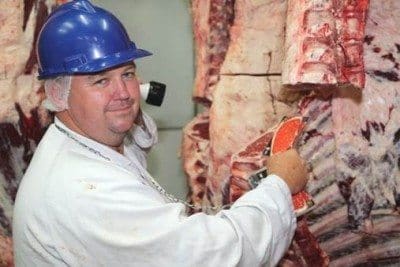MEAT Standards Australia grading compliance and index results have continued to improve during the past financial year, despite the debilitating effects of drought for at least the first nine months of the year.
 The underlying reason is that greater numbers of MSA-destined cattle were directed into feedlots, rather than being grass-finished in the paddock.
The underlying reason is that greater numbers of MSA-destined cattle were directed into feedlots, rather than being grass-finished in the paddock.
MSA released its preliminary fiscal year grading results for the 2019-20 year this morning, showing the national average compliance to MSA minimum requirements for beef lift to 94.2pc last year, up from 93.8pc in 2018-19.
Despite the tough underlying production conditions for the first nine months of the year, the national MSA Index also improved to a record 58.03, an increase of 0.55 Index points on the previous year.
The MSA Index is a single number and standard national measure of the predicted eating quality of a carcase. It provides meaningful producer feedback to benchmark performance and reflects the impact of on-farm impacts on eating quality.
At first glance the result appears to defy logic, but Meat & Livestock Australia group manager for adoption and commercialisation, Sarah Strachan, said grainfed cattle represented 62pc of MSA graded cattle last year, and non-feedlot cattle just 38pc.
That contrasts sharply with the last full year prior to the onset of drought, when grainfed and grassfed cattle each represented 50pc of MSA graded cattle. Historically, grainfed cattle average around 98pc compliance against MSA requirements, with lower levels of dark cutting/pH issues, and typically more consistent fat cover performance than grassfed.
As the proportion of lotfeeding grows, as it has in recent years, it starts to ‘smooth out’ those main compliance issues.
“Given last year’s conditions, it’s a great result. The increase in proportion of feedlot cattle is reflective of the drought conditions in recent years and the subsequent high levels of cattle on feed,” she said.
Beef Central asked about ossification performance trends in MSA cattle last year. While no data is yet available, we’ll examine this in more detail in an upcoming article, when the full report is released at the end of August.
Grading numbers hit record 3.8 million
In this morning’s report, MLA suggests MSA delivered an estimated $172 million in additional farm gate returns to beef producers in 2019-20. The Annual Outcomes data shows a record-breaking 3.8 million cattle were MSA graded in 2019-20, an 8pc increase in the number of cattle compared to 2018-19, representing 46pc of the national adult cattle slaughter.
MSA has a stated objective of reaching 50pc of adult cattle slaughter within the next few years, and currently looks on track to achieve it.
“The latest data demonstrates the value MSA continues to deliver to producers and Australia’s red meat industry,” Ms Strachan said.
“In 2019-20, the average price differential for young non-feedlot MSA cattle was 27c/kg (hot standard carcase weight basis), compared to the same non-MSA graded cattle,” she said.
Ms Strachan said the commitment of producers to adopting on-farm practices to achieve outstanding eating quality in their livestock was also reflected in last financial year’s results.
The benefits of the MSA program continue to attract producers, with 2900 new beef and sheepmeat producers becoming MSA registered in 2019-20.
The Eating Quality Graded (EQG) cipher, released in 2017 to provide brand owners with an opportunity to market product according to consumer eating quality outcomes as an alternative to dentition-based ciphers, has continued to have strong adoption, she said.
As of June 2020, brand owners and processors that represent 50pc of MSA graded beef have adopted the EQG cipher for both domestic and international markets, Ms Strachan said.
A total of 195 beef and sheepmeat brands are currently licensed to use the MSA trademark.
- The full 2019-20 MSA Annual Outcomes report will be released later in August.



HAVE YOUR SAY